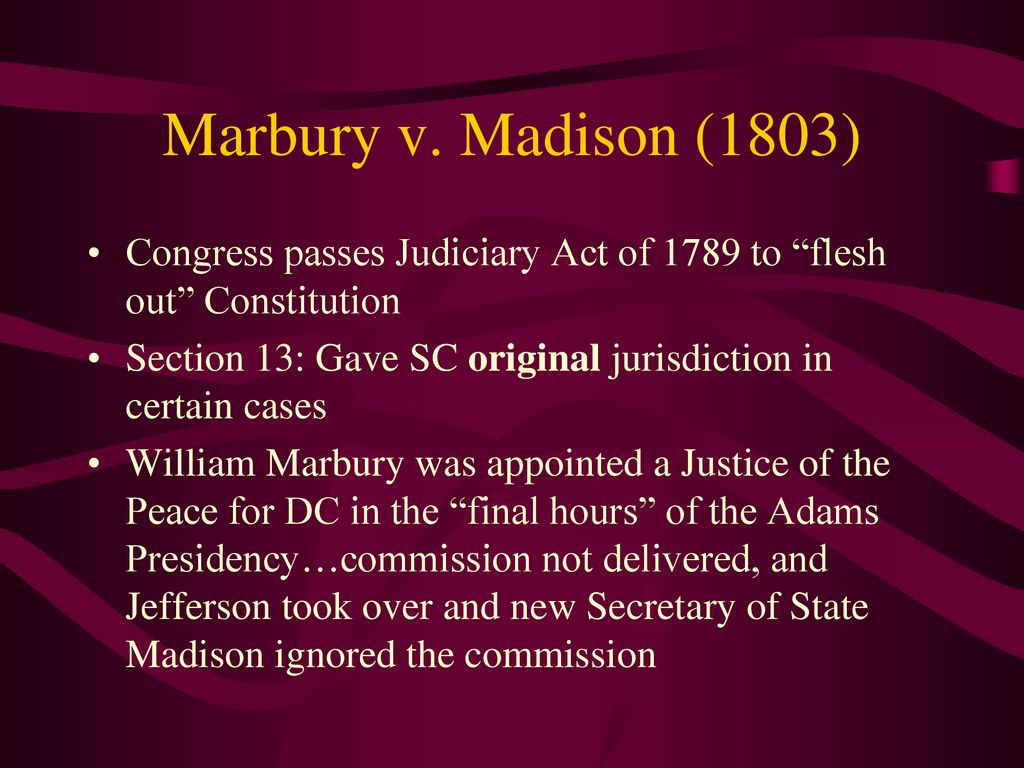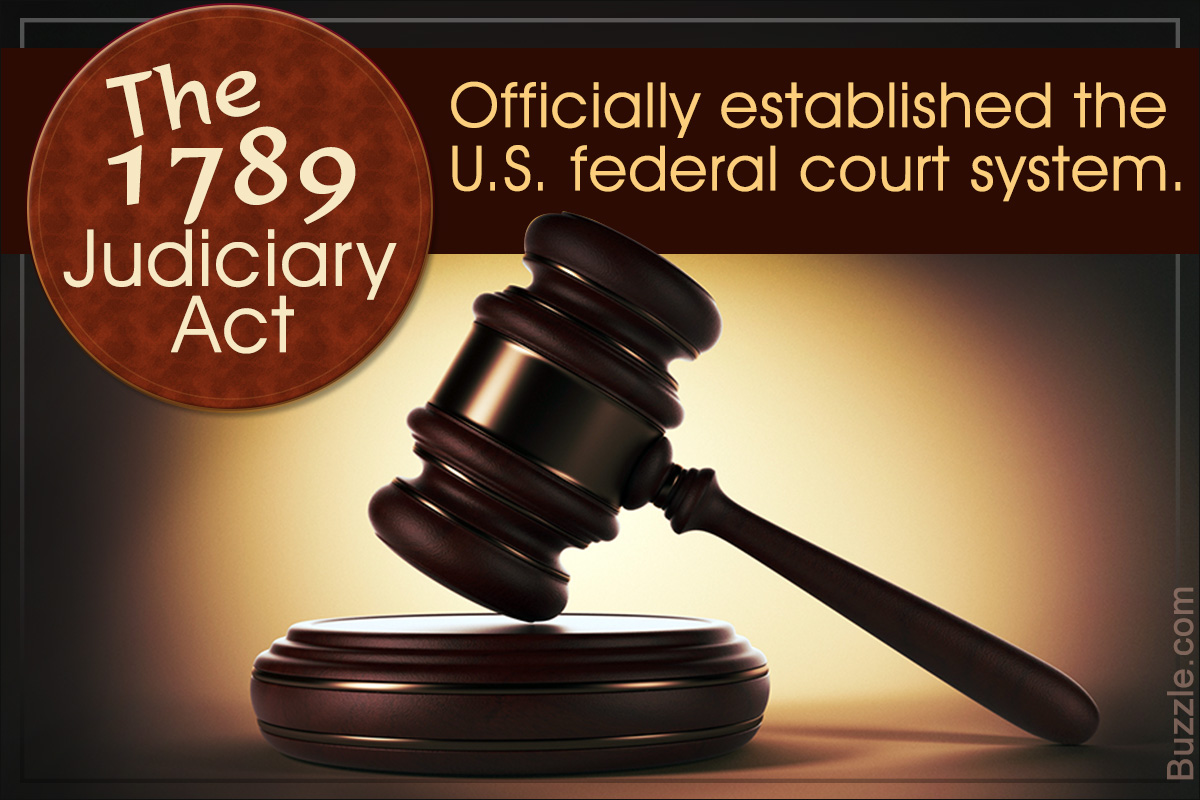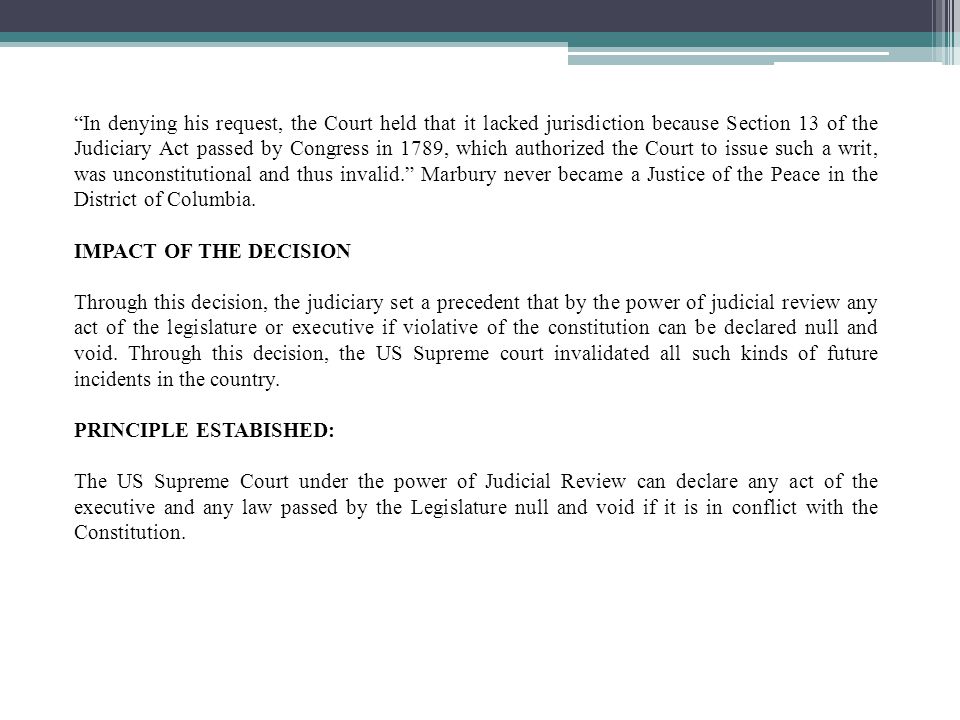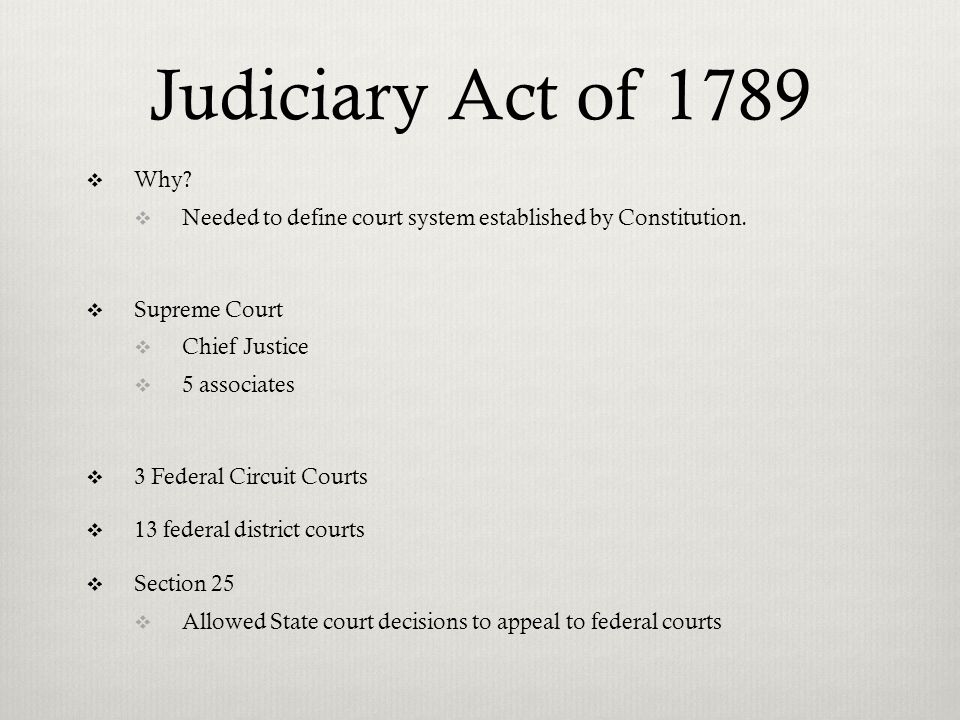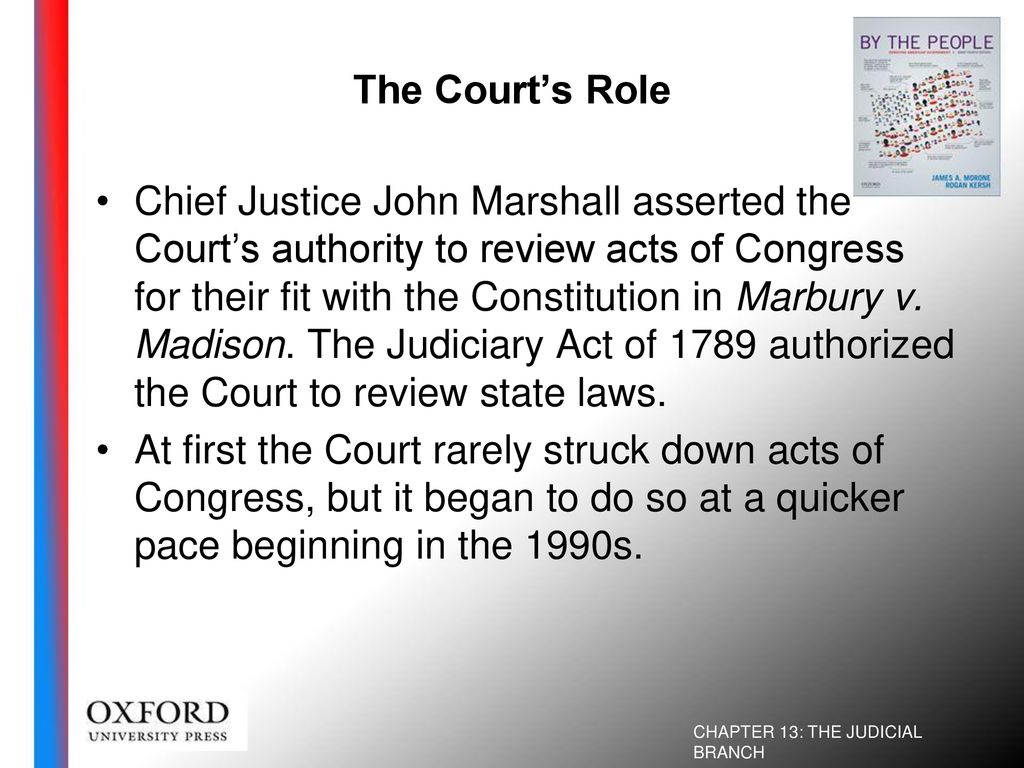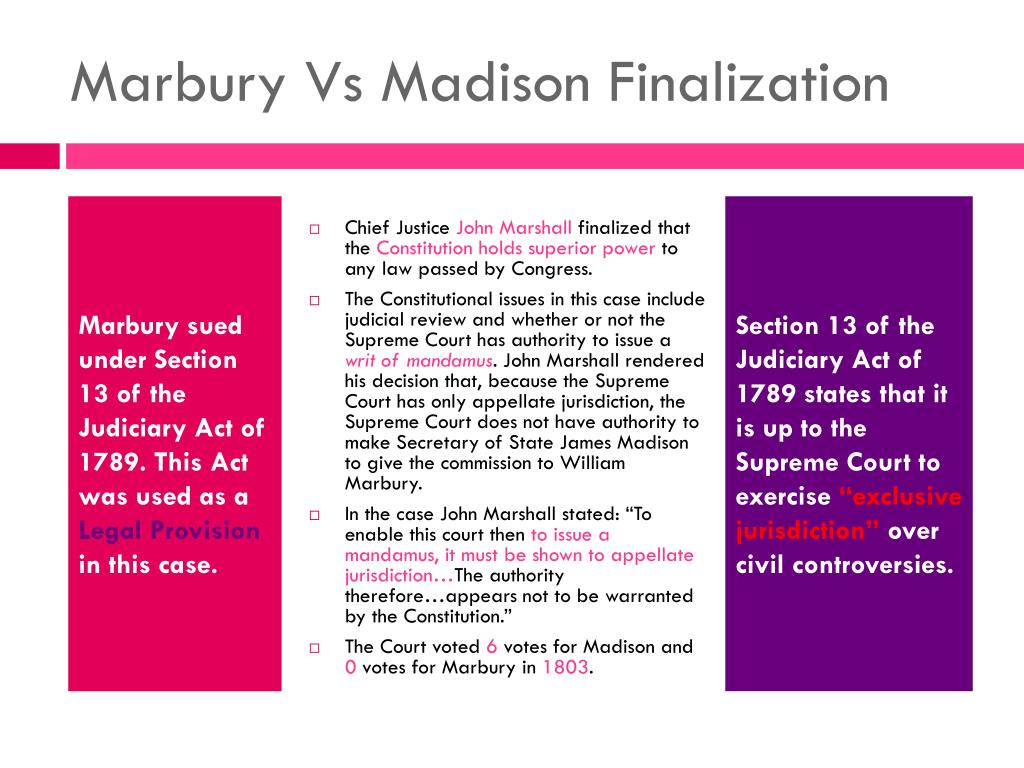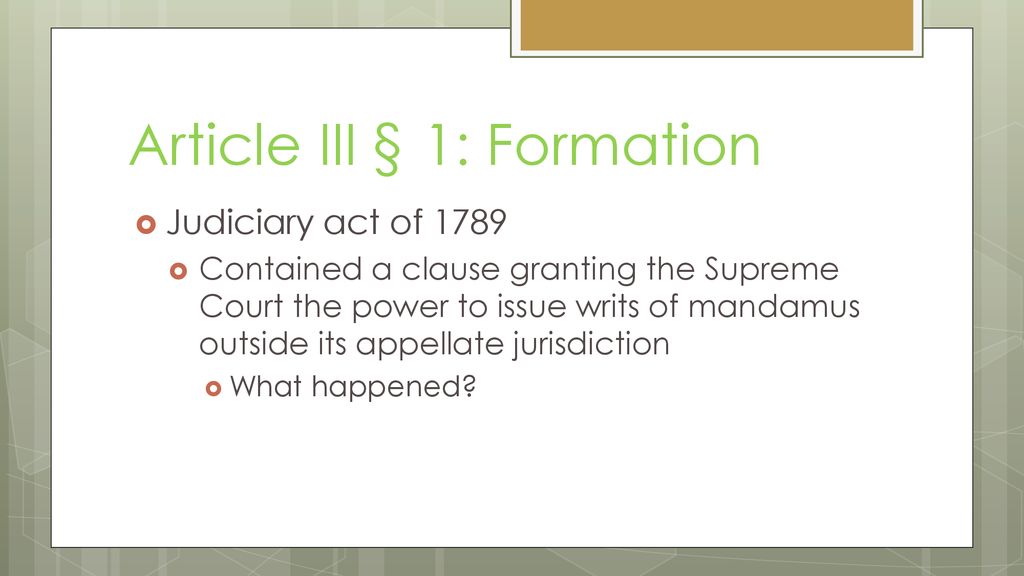Judiciary Act Of 1789 Section 13
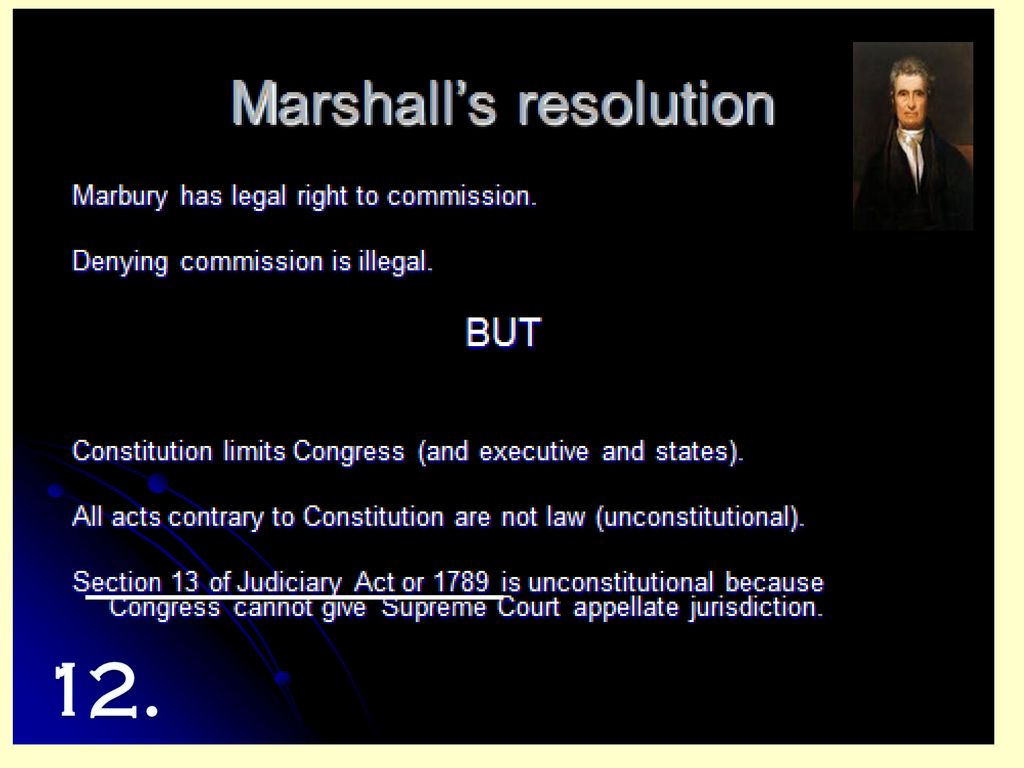
Section 13 judiciary act of 1789 the supreme court shall have power to issue writs of mandamus in cases warranted by the principle and usages of law to any courts appointed or persons holding office under the authority of the united states.
Judiciary act of 1789 section 13. The judiciary act of 1789 included the alien tort statute now codified as 28 u s c. 259 section 13 of the judiciary act of 1789 authorized the supreme court to issue writs of prohibition to the district courts when proceeding as courts of admiralty and maritime jurisdiction and writs of mandamus in. Congress cannot pass laws that are contrary to the constitution and it is the role of the judiciary to interpret what the constitution permits.
Section 13 of the judiciary act of 1789 is unconstitutional to the extent it purports to enlarge the original jurisdiction of the supreme court beyond that permitted by the constitution. An act to establish the judicial courts of the united states. Federal court system which had been sketched only in general terms in the u s.
And except also between a state and citizens of other states or aliens in which latter case it shall have original but not exclusive jurisdiction. And be it further enacted that the supreme court shall have exclusive jurisdiction of all controversies of a civil nature where a state is a party except between a state and its citizens. From the beginning of government under the constitution of 1789 congress has assumed under the necessary and proper clause its power to establish inferior courts its power to regulate the jurisdiction of federal courts and its power to regulate the issuance of writs.
Section 13 of the federal judiciary act 1789 congress of the united states begun and held at the city of new york on wednesday the fourth of march one thousand seven hundred and eighty nine.



